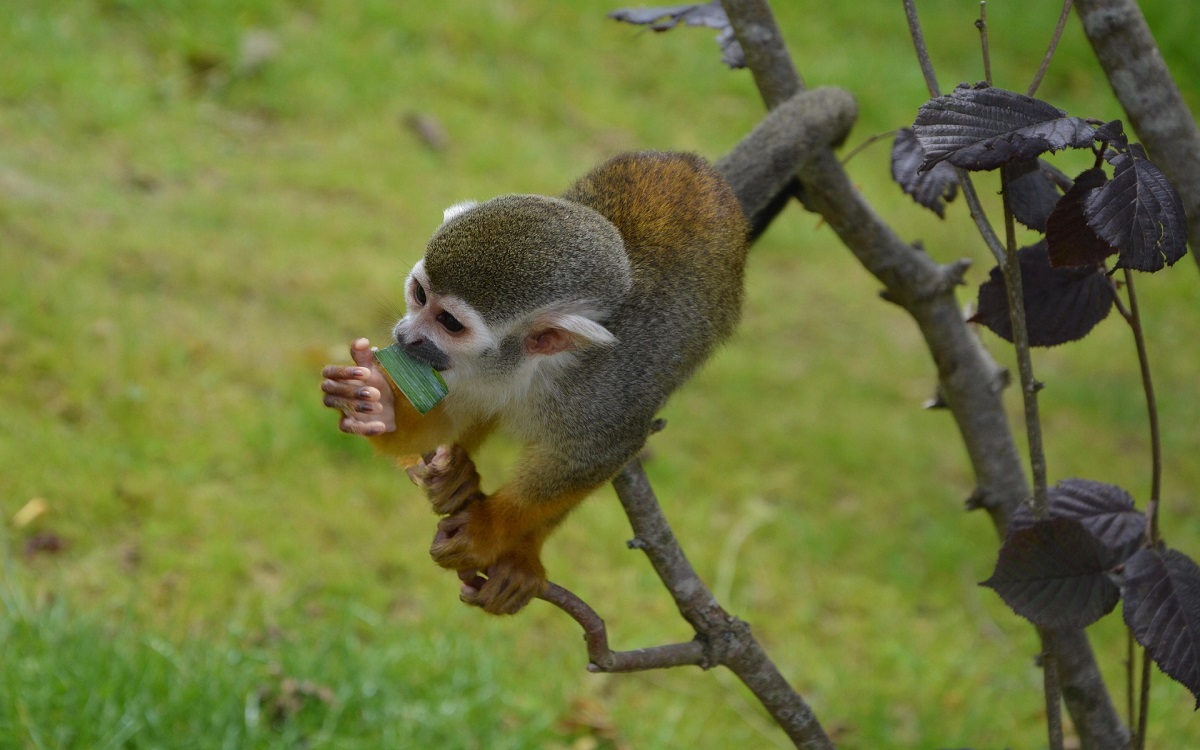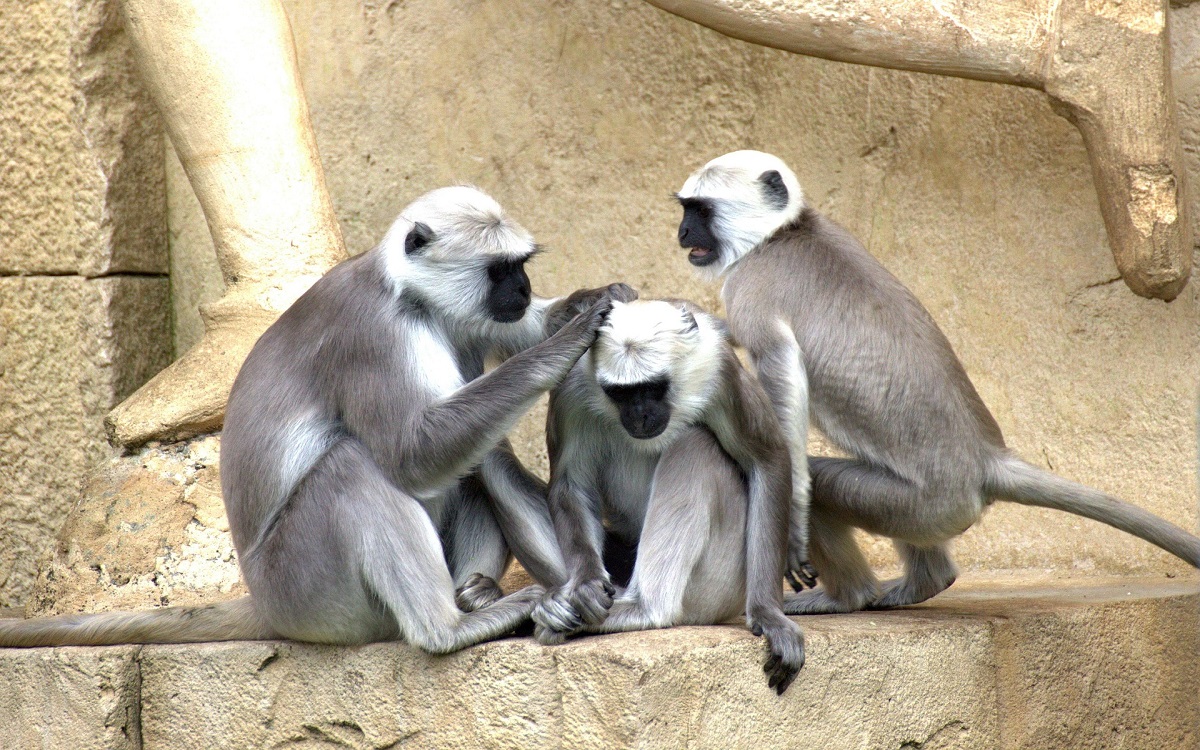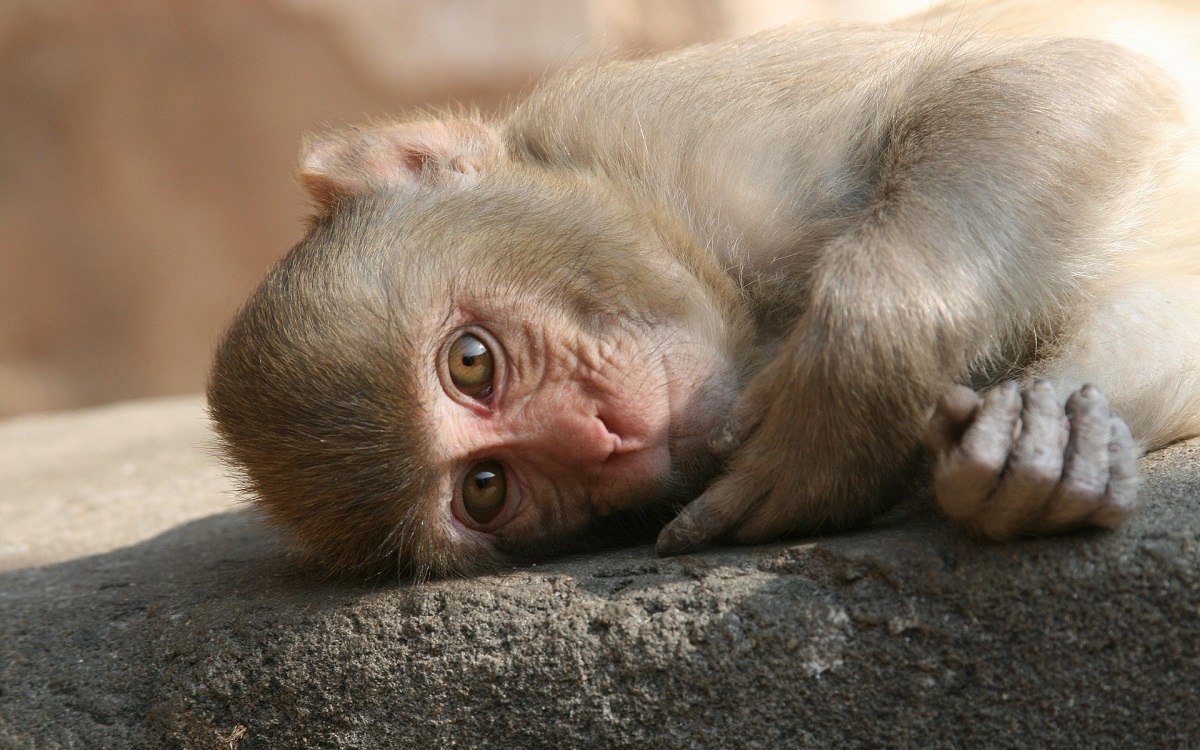They’re adorable, intelligent, and surprisingly human-like — which is exactly why so many people fall for the idea of owning a monkey. From capuchins and macaques to marmosets and squirrel monkeys, it’s easy to imagine one perched on your shoulder like a mischievous little friend. So, do monkeys make good pets?
Here’s the truth: monkeys do not make good pets. Behind those expressive faces and playful antics lies a lifetime of challenges, both for the animal and the person trying to care for it. What starts out as “cute and fun” quickly becomes overwhelming, dangerous, and, in many cases, heartbreaking.

The Myth vs. Reality
Movies and social media make it look easy — a baby monkey dressed in clothes, eating snacks at the dinner table, or clinging to its human like a child. But these images hide the reality of what happens when you try to keep a wild animal in a domestic setting.
Monkeys aren’t domesticated. They’re wild by nature, driven by instincts and needs that can’t be satisfied in a human household. And no matter how much love or care you offer, you can’t undo millions of years of evolution.
1. Monkeys Are Wild Animals, Not Pets
Domestication isn’t the same as taming. Dogs have been bred alongside humans for thousands of years; monkeys haven’t. Even if a monkey is born in captivity, its instincts remain intact — it’s still a wild animal trying to survive in an unnatural environment.
They’re also extremely intelligent and emotionally complex. That intelligence might sound appealing, but it often backfires. A bored or frustrated monkey can learn how to open cabinets, escape enclosures, destroy furniture, or even manipulate locks and windows. It’s not mischief — it’s desperation for stimulation and freedom.
2. Their Care Requirements Are Overwhelming
A monkey’s care routine makes dog or cat care look simple. They need:
- Large, secure enclosures with climbing structures, ropes, and enrichment toys.
- Specialized diets tailored to their species — often a combination of fruits, vegetables, insects, and primate chow.
- Constant social interaction, ideally with other monkeys.
- Veterinary specialists experienced in primate medicine, which can be both rare and expensive.
Most owners can’t meet even half of those needs. And when monkeys don’t get the right nutrition or stimulation, they suffer — physically, emotionally, and mentally.
Many develop self-destructive behaviors such as hair-pulling, rocking, or biting themselves — heartbreaking signs of stress and isolation.

3. They Can Become Aggressive and Dangerous
Baby monkeys are often affectionate and gentle, leading owners to believe they’ll stay that way. Unfortunately, that changes dramatically once they reach sexual maturity.
An adult monkey, even a small one, is incredibly strong. They may lash out without warning, bite, or attack to assert dominance. In the wild, these behaviors help them survive — in a human home, they can cause serious injury.
Many owners end up locking their monkeys in cages for safety, which only worsens their mental decline.
4. Health and Zoonotic Disease Risks
There’s also the serious issue of disease transmission. Monkeys can carry viruses and bacteria that are dangerous — even deadly — to humans. Some of the most concerning include:
- Herpes B virus, which can be fatal to people.
- Hepatitis A and B.
- Tuberculosis and salmonella.
And the danger goes both ways. Human colds, flu, and other illnesses can make monkeys gravely ill. Despite all precautions, the health risks are significant for everyone in the household.
5. Legal and Ethical Barriers
Even if you wanted to own a monkey, you might not legally be allowed to. Many U.S. states (and most other countries) have outlawed private primate ownership due to animal welfare concerns and safety risks.
States like California, New York, New Mexico, and Massachusetts have total bans, while others require expensive, complex permits and regular inspections.
The ethics are equally troubling. Every pet monkey comes from somewhere — and too often, that “somewhere” involves removing infants from their mothers at just a few weeks old. In the wild, baby monkeys stay with their mothers for years, learning essential social and survival skills. Taking them away early causes lifelong trauma.
6. The Emotional Toll on Both Sides
Monkeys form deep emotional bonds — but they’re meant to bond with their own species, not humans. When they’re forced to live without their kind, they experience intense loneliness and confusion.
Owners, meanwhile, often feel torn between love and frustration. The once-cuddly baby becomes destructive or aggressive, leaving owners with no safe options. Many end up surrendering their monkeys to sanctuaries, where they can finally live among their own kind — but the damage is often already done.
There are heartbreaking stories behind nearly every “pet” monkey in sanctuary care. Many arrive malnourished, toothless (from owners who tried to prevent biting), or emotionally scarred. These stories are a sobering reminder that good intentions aren’t enough.

A Better Way to Love Monkeys
You can still love monkeys — without owning one.
Here are a few ethical, impactful alternatives:
✅ Support wildlife sanctuaries that rescue and rehabilitate former pet monkeys.
✅ Adopt symbolically. Many sanctuaries let you “adopt” a monkey virtually, helping fund its care while keeping it in a safe, natural habitat.
✅ Visit accredited sanctuaries or zoos that focus on conservation and education.
✅ Raise awareness about why primates should never be kept as pets.
Every donation, social media share, or word-of-mouth conversation helps shift demand away from the exotic pet trade and toward real conservation.
Final Thoughts: Love Them Wild
Do monkeys make good pets?
No — and that’s exactly why they deserve better.
Monkeys aren’t meant to wear diapers, live in cages, or sit on couches. They’re meant to swing from trees, forage with their families, and live complex social lives that no human home can replicate.
By choosing not to keep a monkey as a pet, you’re showing real compassion — the kind that protects these intelligent, sensitive animals from a lifetime of stress and suffering.
If you want a smart, loving companion, adopt a dog, cat, or even a parrot — animals that have evolved to live with humans. But please, let monkeys stay wild, where they belong.

